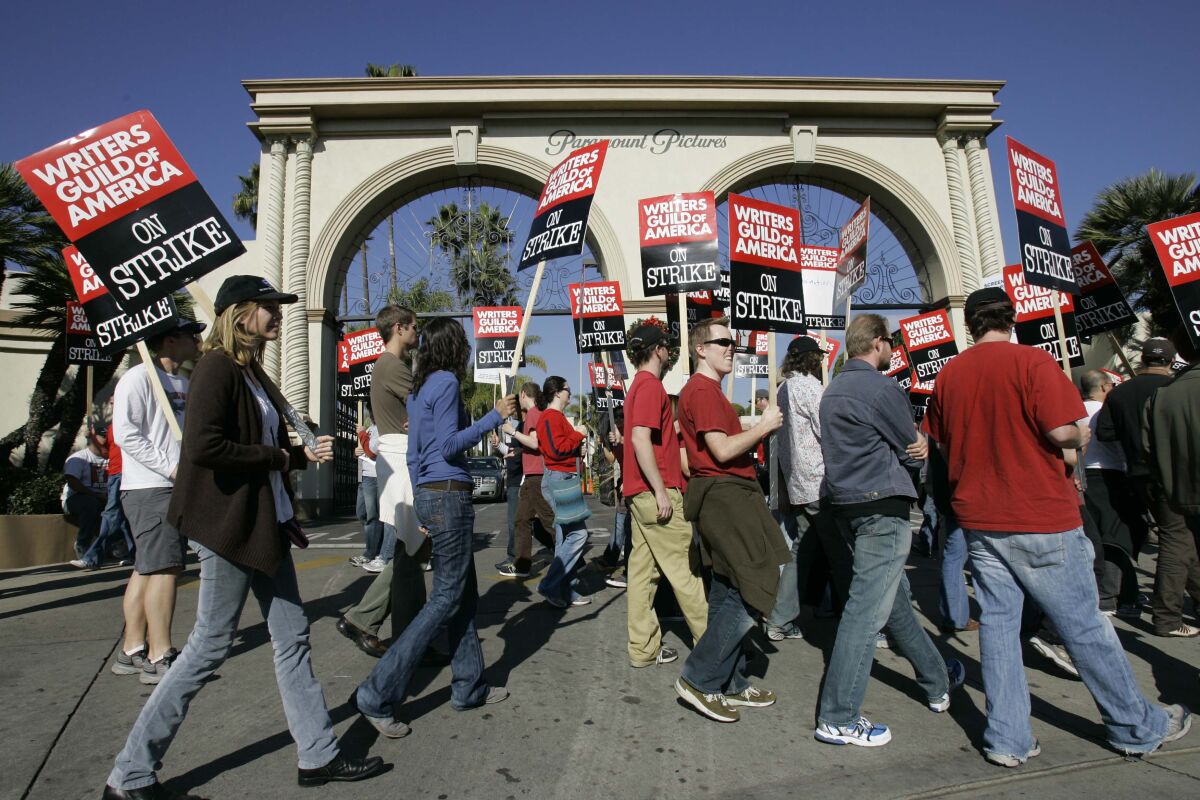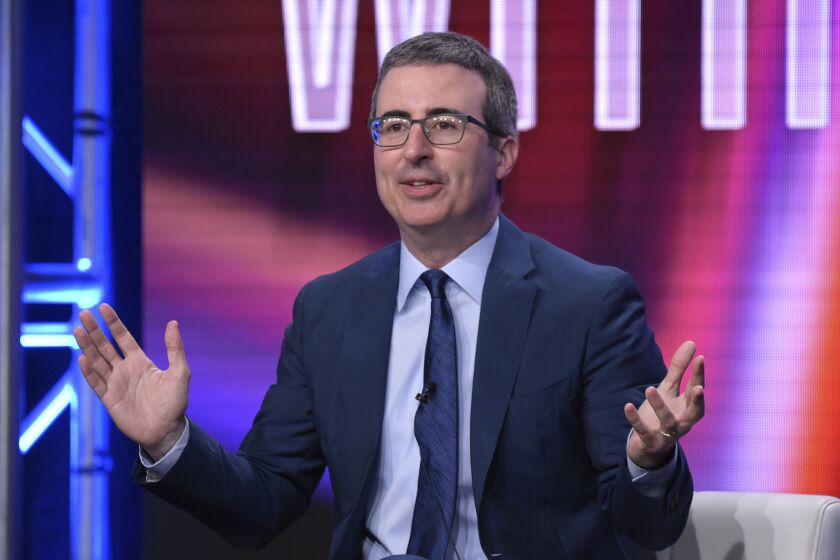Writers Guild and studios continue talks, but deal remains elusive as possible strike looms

As talks between writers and the major studios come down to the wire, a deal to negotiate a new contract that would avoid Hollywood’s first strike in 15 years remains elusive, according to three people with knowledge of the talks.
The Alliance of Motion Picture and Television Producers this week made counterproposals to the Writers Guild of America, which began negotiations on March 20. The union is seeking nearly $600 million in wage increases and other demands.
Streaming has transformed television and led to a surge in content, but it also has squeezed Hollywood writers. Five Writers Guild of America members share their stories.
The two sides have convened at the offices of the AMPTP atSherman Oaks Galleria this week and are expected to continue negotiations through the weekend down to the final hours before the contract lapses midnight Monday, the people said.
While there has been some progress in the talks, the sides remain far from reaching an agreement on a new contract, according to three people with knowledge of the negotiations who were not authorized to comment.
WGA members have already voted by a record margin to authorize their leaders to call a strike as early as Tuesday 12:01 a.m. if no deal is reached with the studios.
Although it’s possible the union could allow members to continue to work under the old contract even after it expires, such an outcome appears unlikely. The WGA has already told its 11,500 members that “rumors” of an extension to allow more time for talks were unfounded.
The Writers Guild of America is adding pressure on Hollywood studios, highlighting how their shows and streaming platforms will be affected by a strike if it happens on May 2.
The high-stakes bargaining is being closely watched by entertainment industry companies and workers. Writers have said they believe their profession faces an existential crisis as streaming has upended the economics of Hollywood. Meanwhile, studios are under pressure from Wall Street to shore up their balance sheets and improve the profitability of their streaming platforms.
The WGA and AMPTP had no immediate comment.
If the union goes on strike, scores of TV and film productions nationwide will be forced to halt production and late-night talk shows would go off air.
In a sign of the potential fallout, no permits have been requested by producers for scripted shows to shoot in Los Angeles next week, said Philip Sokoloski, spokesman for FilmLA, the nonprofit group that handles film permits for the region.
A production halt this summer could jeopardize broadcast networks’ fall lineups. Streaming companies are also under pressure to keep audiences subscribed, although several studios have announced cutbacks in production and layoffs. Walt Disney Co. alone is in the midst of shedding 7,000 jobs.
The strike would be the first in 15 years and history suggests it could be protracted. The longest WGA strike was in 1988 and lasted 153 days. The last WGA strike, in 2007-08, spanned 100 days.
The union has already started making plans for another strike, constructing thousands of signs and surveying members to find out where they would be available to stage pickets, said one source close to the union.
TV writer David Slack was among several union members posting on Twitter about their strike preparations.
“While assembling picket signs at WGA headquarters, MEGAN screenwriter Akela Cooper found this old picket stick that I signed back during the ‘07 strike,” Slack tweeted with a photo of a stick he had signed on Dec. 5, 2007. “We marched and won then, and if we have to, we’ll march and win again.”
The WGA has received vocal support from other entertainment industry unions, including the International Alliance of Theatrical Stage Employees, Teamsters, the Directors Guild of America and the powerful performers union, SAG-AFTRA.
DGA is scheduled to start its negotiations on May 10; and SAG-AFTRA begins talks on June 10. Both unions’ contracts expire June 30.
Hollywood has been on edge over rising expectations that the Writers Guild of America will stage its first strike since the 100-day walkout of 2007-08.
Inside the business of entertainment
The Wide Shot brings you news, analysis and insights on everything from streaming wars to production — and what it all means for the future.
You may occasionally receive promotional content from the Los Angeles Times.







